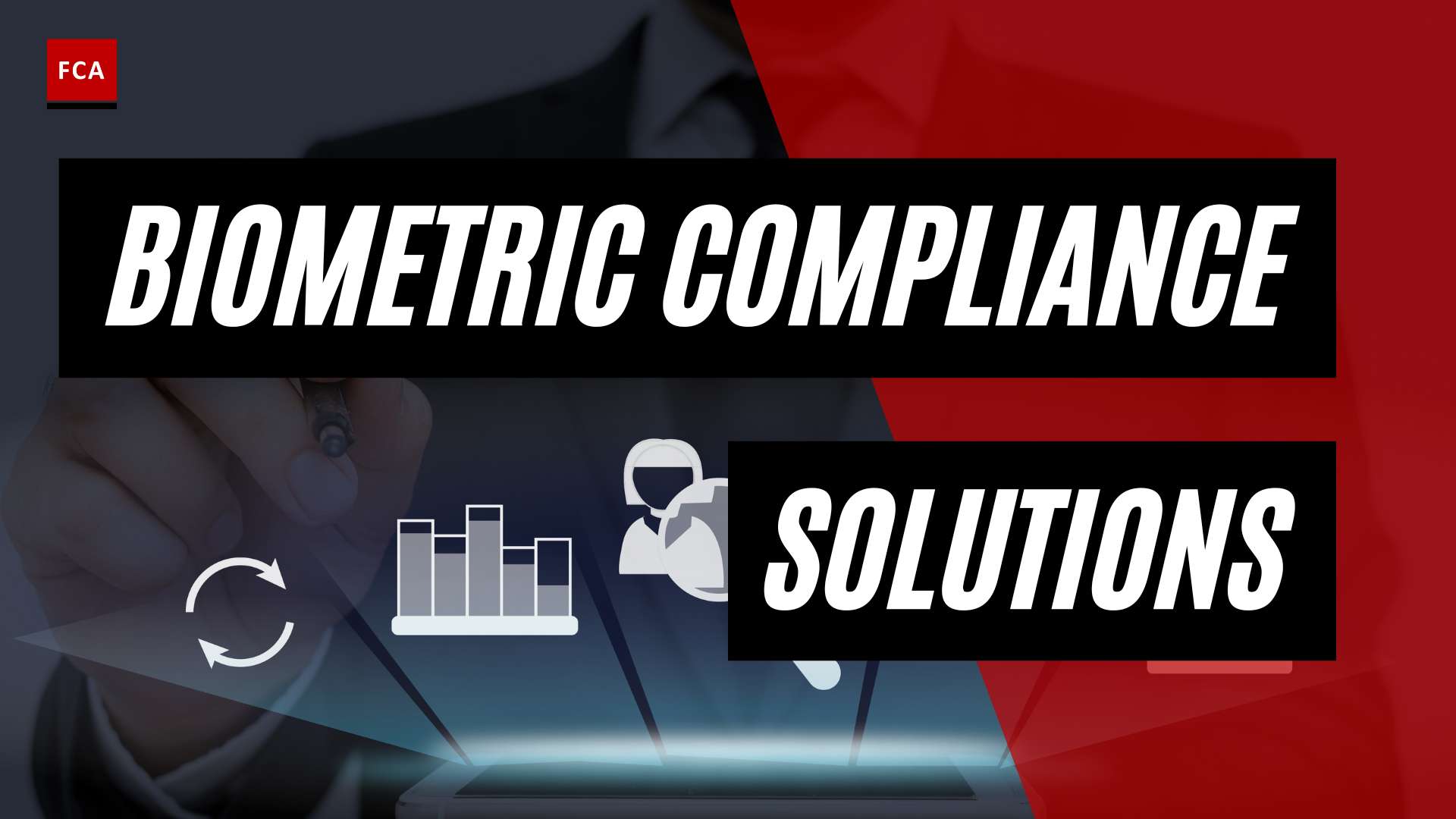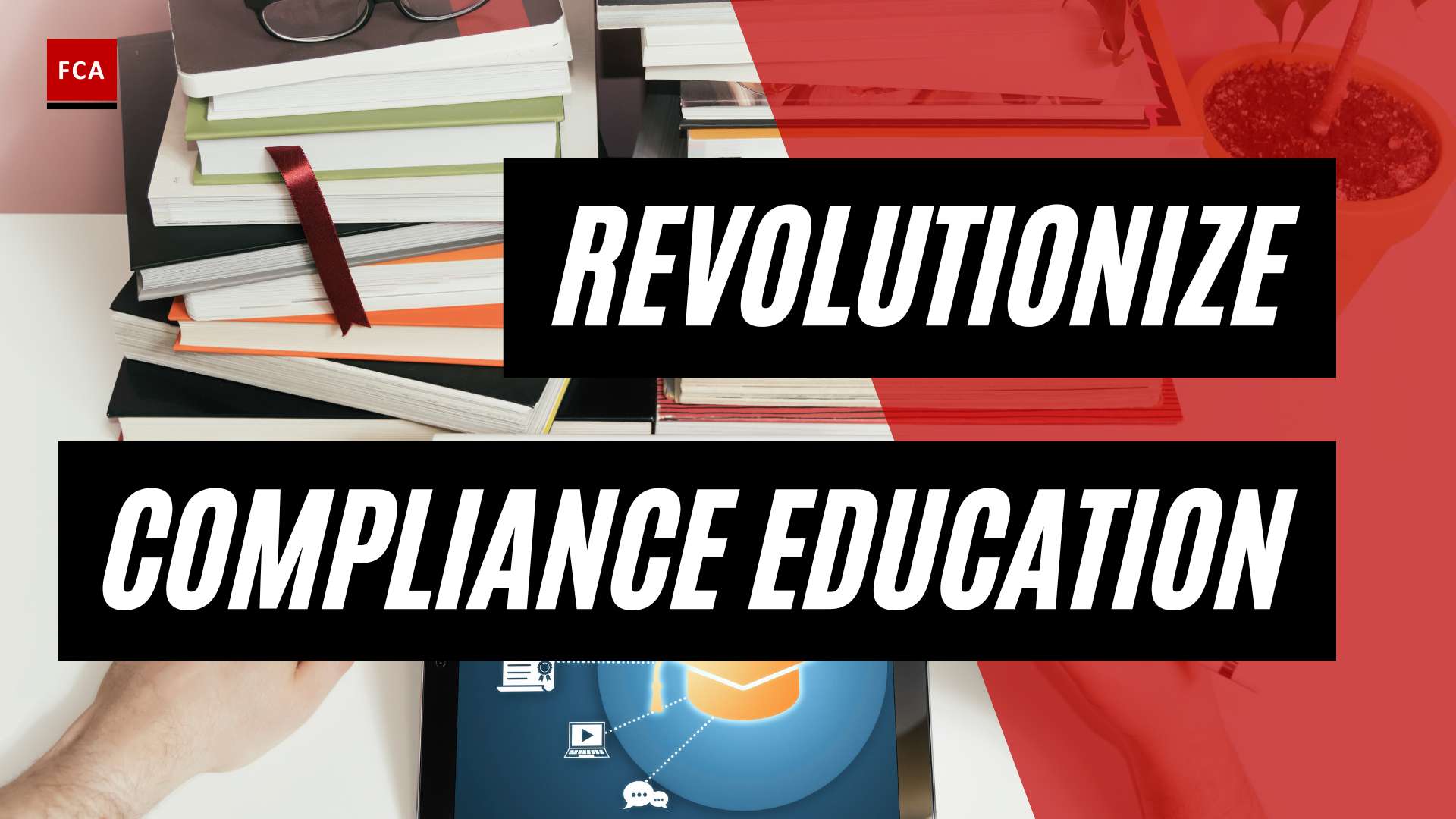Exploring Careers in AML
When considering a career in Anti-Money Laundering (AML), it is important to understand the various career paths available and the potential job growth in the field.
Understanding AML Career Paths
The field of AML offers diverse career paths, catering to individuals with different interests and skill sets. Some common career options include:
- AML Analyst: An AML analyst is responsible for conducting investigations and risk assessments to identify and prevent money laundering activities. They analyze financial transactions, monitor suspicious activities, and report any findings to the appropriate authorities.
- AML Investigator: An AML investigator delves deeper into suspicious activities, conducting more extensive research and analysis to uncover potential money laundering schemes. They collaborate with law enforcement agencies and utilize various tools and techniques to gather evidence and build cases against individuals or organizations involved in financial crimes.
- AML Officer: An AML officer plays a crucial role in ensuring that organizations comply with AML regulations and guidelines. They develop and implement AML policies and procedures, conduct risk assessments, and provide training to employees on best practices for detecting and preventing money laundering.
These are just a few examples of the career paths available in AML. The field continues to evolve, creating new opportunities for professionals who are passionate about combating financial crimes.
Job Growth in the AML Field
The demand for AML specialists is on the rise, with job growth in the field projected to be approximately 8% from 2020 to 2030 in the United States alone, leading to approximately 5,800 new job openings. This growth is driven by increased efforts to combat money laundering and the tightening of regulations (Franklin University). Additionally, countries like Canada are actively working to combat money laundering, resulting in a growing need for AML professionals (CPA Canada).
The importance of AML compliance and the need for skilled professionals in the field is evident. Organizations recognize the significance of effectively combating financial crime and are investing in resources to strengthen their AML programs. However, a survey conducted among AML compliance officers revealed that many organizations still feel they lack the necessary resources to effectively combat financial crime (AML UAE).
As the AML field continues to grow, individuals with expertise in AML compliance, risk assessment, and investigations will find ample opportunities for career advancement and progression.
In the following sections, we will explore the requirements and responsibilities of entry-level AML positions, as well as the progression opportunities, specialized skills, and certifications that can further enhance your AML career.
Entry-Level Positions in AML
For individuals looking to start a career in Anti-Money Laundering (AML), entry-level positions provide an excellent foundation for career growth and progression. These positions typically require a minimum of a bachelor’s degree in finance, criminal justice, or a related field. However, some employers may accept equivalent work experience in lieu of a degree (Indeed). Let’s explore the requirements for entry-level AML jobs and delve into the role and responsibilities of an AML analyst.
Requirements for Entry-Level AML Jobs
To secure an entry-level position in AML, employers generally seek candidates who possess the following qualifications:
- Education: A bachelor’s degree in finance, criminal justice, or a related field is often required. This educational background provides a solid understanding of financial systems, regulations, and compliance measures.
- Relevant Skills: Employers look for candidates with strong analytical and problem-solving skills. Attention to detail, the ability to think critically, and good organizational skills are essential in AML roles. Additionally, familiarity with financial software and tools, as well as knowledge of AML regulations, is highly valued.
- Certifications: While not always required for entry-level positions, obtaining industry-recognized certifications can enhance job prospects and demonstrate commitment to professional development. Certifications such as the Certified Anti-Money Laundering Professional (CAMP) can provide a competitive edge and open doors to more advanced roles within the field. You can find more information about AML certifications here.
AML Analyst Role and Responsibilities
An AML analyst plays a critical role in monitoring and investigating financial activities to ensure compliance with regulations and to prevent money laundering and financial crimes. This entry-level position serves as the foundation for a successful career in AML.
The responsibilities of an AML analyst may include:
- Transaction Monitoring: AML analysts review financial transactions and customer activity to identify potential suspicious behavior. They analyze patterns, trends, and anomalies that could indicate money laundering or other illicit activities.
- Investigation: When potential red flags are identified, AML analysts conduct thorough investigations. This involves gathering and analyzing additional information, collaborating with other departments or external agencies, and documenting findings.
- Reporting: AML analysts prepare reports summarizing their investigations and findings. These reports are essential for compliance purposes and may be used by law enforcement or regulatory authorities in the event of an investigation.
- Risk Assessment: AML analysts assess the overall risk profile of individuals, businesses, or transactions. They evaluate the potential for money laundering or other financial crimes and make recommendations for enhanced due diligence or further investigation, if necessary.
- Compliance Support: AML analysts assist in ensuring that the organization adheres to AML regulations and internal policies. They may provide training and guidance to employees on AML procedures and best practices.
Entry-level AML analysts play a crucial role in safeguarding the financial system from illicit activities. This position provides an opportunity to develop strong analytical skills, gain industry knowledge, and build a solid foundation for career advancement within the AML field.
In our next section, we will explore the opportunities for career progression in AML and the specialized skills and certifications that can contribute to professional growth.
Advancing in AML
For professionals in the field of Anti-Money Laundering (AML) compliance, there are ample opportunities for career progression. As organizations worldwide recognize the importance of combating financial crime, AML professionals are in high demand. In this section, we will explore the progression opportunities available in the AML field and the specialized skills and certifications that can enhance one’s career prospects.
Progression Opportunities in AML
The AML compliance field offers a clear path for career advancement. According to a survey conducted among AML compliance officers, over 60% of respondents were promoted within their organizations, with 57% of those promotions occurring within the previous two years (AML UAE). This indicates that organizations are recognizing the need for experienced professionals who can effectively manage the challenges of increased regulations and the growing sophistication of financial crime.
Advancement within the AML field can take various forms. Professionals can progress from entry-level positions, such as AML analysts or AML officers, to more senior roles, such as AML managers, directors, or chief compliance officers. The specific career path may vary depending on the organization and the individual’s skills, qualifications, and experience.
To increase your chances of career progression, it is essential to continuously develop your skills and stay updated with the latest industry trends. Specialized skills and certifications play a significant role in enhancing your expertise and marketability in the AML field.
Specialized Skills and Certifications in AML
AML compliance officers must possess a range of core skills to excel in their roles. These include analytical thinking, attention to detail, risk assessment, effective communication, and a comprehensive understanding of AML regulations (AML UAE). Demonstrating proficiency in these skills can make you stand out as a valuable asset to employers and increase your chances of career advancement.
Obtaining a certification in AML can significantly boost your career progression in the AML compliance field. The CAMP certification is recognized globally as a symbol of excellence in AML compliance, providing professionals with a competitive edge in the job market (Financial Crime Academy).
Having a certification can lead to increased employment opportunities and higher salaries for individuals working in AML compliance roles (Financial Crime Academy). Professionals with certification are in high demand across various industries, including banking, insurance, and fintech, due to the increasing need for strong AML compliance measures worldwide (Financial Crime Academy).
Furthermore, individuals who hold a certification often progress more quickly into senior AML compliance roles within organizations. The certification demonstrates their expertise and commitment to effectively combatting financial crime, earning them the trust and confidence of employers (Financial Crime Academy).
By continuously developing your skills and obtaining relevant certifications, you can position yourself for career advancement in the dynamic and rewarding field of AML compliance. The AML career progression opportunities, coupled with specialized skills and certifications, will enable you to excel in combatting financial crime and contribute to a safer financial environment.
Senior Roles in AML
As professionals progress in their AML career, they may have the opportunity to take on more senior roles within the field. Two prominent senior positions in the AML industry are AML Manager and AML Director/Chief Compliance Officer.
AML Manager Responsibilities
AML managers play a crucial role in overseeing and managing the day-to-day operations of the AML department. They are responsible for developing and implementing policies and procedures, conducting risk assessments, and ensuring compliance with AML regulations. A key aspect of their role is leading and supervising a team of AML analysts, providing guidance and support to ensure that all suspicious activities are properly investigated and reported (Indeed).
In addition to managing the operational aspects of the AML department, AML managers are responsible for staying up-to-date with the latest AML regulations and industry best practices. They must ensure that their team members receive appropriate training and education to effectively combat financial crimes. AML managers also collaborate with senior management and other departments to establish effective AML policies, procedures, and controls (Indeed).
AML Director and Chief Compliance Officer Positions
At a higher level of responsibility, AML directors oversee the entire AML program within an organization. They are responsible for developing and implementing strategic plans to prevent money laundering and financial crimes. AML directors collaborate with senior management and other departments to establish effective AML policies, procedures, and controls. They also provide guidance and support to AML managers and analysts, ensuring that the organization’s AML program aligns with regulatory requirements and industry standards. AML directors represent the organization in AML-related matters with regulatory authorities and external stakeholders.
The Chief Compliance Officer (CCO) holds the highest level of responsibility for AML compliance within an organization. In addition to overseeing the entire compliance program, including AML, they ensure that it meets regulatory requirements and industry standards. CCOs provide strategic direction and leadership in developing and implementing effective AML policies, procedures, and controls. They work closely with senior management and the board of directors to ensure that the organization’s AML program is robust and aligned with the organization’s risk appetite and business objectives. CCOs also foster a culture of compliance within the organization, promote ethical behavior, and represent the organization in AML-related audits, examinations, and investigations (Indeed).
To excel in these senior roles, AML managers, directors, and CCOs must possess strong leadership, communication, and analytical skills. They must have a deep understanding of AML regulations and industry trends, as well as the ability to make sound judgments and decisions in complex and rapidly changing environments. Fostering a culture of compliance, promoting ethical behavior, and ensuring that employees understand their roles and responsibilities in preventing money laundering and financial crimes are also essential aspects of these positions. AML managers, directors, and CCOs may also be involved in representing the organization in AML-related audits, examinations, and investigations, ensuring full cooperation and effective responses to inquiries or requests for information (Indeed).
As professionals navigate their AML career, reaching senior roles like AML Manager, AML Director, or Chief Compliance Officer requires a combination of experience, knowledge, and leadership skills. These positions offer increased responsibility and the opportunity to make a significant impact in combatting financial crimes and ensuring compliance with AML regulations.
AML Career Development
To thrive in the field of anti-money laundering (AML) and progress in your AML career, continuous education and professional development are essential. A commitment to ongoing learning ensures that you stay up-to-date with evolving AML regulations, industry best practices, and emerging financial crime trends. In this section, we will explore the importance of continuing education and the benefits of pursuing a Master’s in AML or obtaining the Certified Anti-Money Laundering Professional (CAMP) certification.
Importance of Continuing Education
In the dynamic world of AML, where regulations and technologies constantly evolve, continuing education plays a vital role in career development. Staying informed about the latest AML trends, compliance strategies, and emerging financial crime threats enables AML professionals to effectively mitigate risks and protect their organizations from money laundering and other illicit activities.
Continuing education offers several benefits for AML career progression:
- Enhanced Knowledge and Skills: By engaging in ongoing learning, professionals can deepen their understanding of AML concepts, regulatory frameworks, and detection techniques. This knowledge equips them with the expertise needed to navigate complex AML challenges and make informed decisions in their roles.
- Professional Credibility: Employers and industry stakeholders value professionals who demonstrate a commitment to continuous learning. By investing in your education, you enhance your professional credibility and position yourself as a trusted expert in the field.
- Career Advancement Opportunities: AML professionals who actively pursue continuing education opportunities often have a competitive advantage when it comes to career advancement. Acquiring new skills and knowledge opens doors to higher-level positions, increased responsibilities, and enhanced earning potential.
Master’s in AML
A Master’s degree in AML offers a comprehensive and in-depth education in anti-money laundering principles, financial crime prevention, risk management, and compliance strategies. This advanced degree program equips individuals with the knowledge and skills necessary to tackle complex AML challenges and assume leadership roles within organizations.
A Master’s in AML covers a wide range of topics, including:
- AML Regulations and Global Standards: Understanding the regulatory landscape and global AML standards is crucial for effective AML compliance. A Master’s in AML program provides a deep dive into these essential frameworks.
- Risk Assessment and Management: A thorough understanding of risk assessment methodologies and risk management strategies enables professionals to identify vulnerabilities, implement effective controls, and mitigate AML risks.
- Investigation Techniques: Master’s programs often emphasize investigative techniques for identifying and analyzing suspicious financial activities. These skills are critical for AML professionals involved in transaction monitoring and reporting.
- Emerging Trends and Technologies: AML programs also cover emerging trends, such as cyber-enabled financial crimes, terrorist financing, corruption, and money laundering schemes encountered in the financial sector. Understanding these evolving threats helps professionals stay ahead of criminals and protect their organizations.
CAMP Certification
The Certified Anti-Money Laundering Professional certification, offered by FCA, is globally recognized as a symbol of excellence in AML compliance. Obtaining the CAMP certification can significantly boost an individual’s career progression in the field of AML (Financial Crime Academy).
Benefits of the CAMP certification include:
- Increased Employment Opportunities: Holding a CAMP certification enhances your employability and opens doors to a wide range of AML compliance roles across industries such as banking, insurance, and fintech.
- Higher Salaries: AML professionals with CAMP certification often command higher salaries due to their expertise and the increasing demand for strong AML compliance measures worldwide (Financial Crime Academy).
- Demonstrated Expertise: The CAMP certification demonstrates your commitment to combating financial crime effectively. Employers value professionals who possess the knowledge and skills validated by this globally recognized certification (Financial Crime Academy).
- Career Advancement: Professionals with CAMP certification are often able to progress more quickly into senior AML compliance roles within organizations. The certification serves as evidence of their expertise and dedication to the field.
Completing a Master’s in AML program or obtaining the CAMP certification signifies a significant investment in your AML career development. Both options provide you with the knowledge, skills, and credentials to excel in the field and unlock exciting opportunities for growth and advancement.
Salary and Job Outlook in AML
Understanding the salary and job outlook in the field of Anti-Money Laundering (AML) is crucial for individuals considering a career in this industry. This section will provide insights into entry-level AML salaries and the career growth and salary potential within the AML field.
Entry-Level AML Salaries
Entry-level AML positions provide a starting point for individuals looking to embark on a career in this field. Salaries for these positions can vary based on factors such as location, level of experience, and the specific organization. In the United States, entry-level AML Analyst salaries can range from $32,500 to $69,000 annually, with an average salary of $46,948 per year (ZipRecruiter). However, it’s important to note that these figures are approximate and can vary depending on various factors.
As individuals gain experience and develop their skills, there is potential for salary growth and financial advancement within the AML field. It is not uncommon for AML professionals to see increases in their salaries as they progress in their careers. By acquiring specialized skills, certifications, and relevant experience, professionals can position themselves for higher-paying roles within the field.
Career Growth and Salary Potential in AML
Career growth in the AML field can involve progressing to senior positions such as AML Compliance Officer, AML Manager, or Director of AML. These roles come with increased responsibilities and higher pay scales. The salary potential for these senior positions can vary significantly based on factors such as job location, the size of the organization, and the level of expertise possessed by the individual.
In the United States, on average, AML compliance officers earn between $65,000 and $80,000 annually. Salaries may increase to $100,000 for officers with experience and specialized skills. It’s important to note that these figures are approximate and can vary depending on various factors.
The job outlook for AML professionals is promising. The demand for AML professionals is high, with institutions worldwide seeking specialists who can effectively manage the challenges of increased regulations and the growing sophistication of financial crime (AML UAE). Job opportunities in the AML field are expected to grow due to increased regulatory requirements and the need for organizations to prevent financial crimes (ZipRecruiter). This growth in demand presents opportunities for career advancement and professional development within the AML field.
By continuously enhancing skills, staying updated with industry trends, and pursuing relevant certifications such as AML certifications, individuals can position themselves for career progression and seize the potential for higher salaries and job growth in the AML field.
In conclusion, while entry-level AML salaries may vary, the potential for career growth and salary advancement is evident within the AML field. As professionals gain experience, develop specialized skills, and take on higher-level responsibilities, they can expect to see an increase in their earning potential. The growing demand for AML professionals highlights the positive job outlook and the numerous opportunities available in this dynamic and critical field.
Exploring Straighteners for Curly Hair
Ceramic Straighteners
Tourmaline Straighteners
Titanium Straighteners
Content Brief:
- The target topic for the article is ‘Anti-Money Laundering > AML Career > Career Paths in AML’.
- The target audience for the article is ‘Anti-Money Laundering > AML Career > Career Paths in AML’.
- The target keyword for the article is ‘aml career progression’.
- The perspective for the article is ‘Third Person (he, she, it, they)’.
- The tone of voice for the article is ‘Neutral (clear, knowledgeable and confident)’.
- The article should be written in language ‘English (US)’.
- The reading level of the audience is ‘US Grade 8’.
- The article should include tables to display numerical data.
- The article must include internal links.
Directions:
- Respond in valid markdown, sparingly using tables and lists where relevant.
- Headers are denoted by
##and###, make sure to include all headers in the output. - If available, you should use the extra context for up to date information about the topic.
- You should cite information, facts and figures from the extra context.
- You should include inline markdown links for citations from the extra context.
- You should only write in the language specified, do not add any unnecessary English words.
- You should use synonyms for keywords to avoid repetition.
- You should include a table if you need to represent numerical data.
- You should add internal links within the text.
- You should add internal links as inline markdown links.
- Do not add any extra headers or sections.
- Do not use transition words or phrases.
- Do not include a conclusion.
Internal links:
- aml certifications
- aml analyst career
- aml officer job
- aml job opportunities
- aml investigator career
- aml career salary
- aml career outlook
- aml career paths
- aml career options
Extra Context:
“`
- A career in anti-money laundering requires the development of a risk-based and comprehensive anti-money laundering/counter-terrorist financing framework to mitigate and prevent threats. Factors such as understanding customers through Customer Due Diligence and reporting suspicious activity are vital tools in combating money laundering. (International Compliance Association)
- CPAs are well-positioned for a career in the AML field due to their training that provides them with expertise in financial systems, IT systems, cash flow, and control measures. They are also adept at interpreting regulations and standards, making it easier for them to acquire additional training to excel in the AML sector. (CPA Canada)
- A variety of employers offer opportunities for AML specialists, including accounting firms, financial service institutions, government agencies, and private companies. The expansion of regulations under the Proceeds of Crime (Money Laundering) and Terrorist Financing Act has broadened the scope of companies obligated to comply with AML policies, creating diverse job prospects in the industry. (CPA Canada)
- Core qualities required for working in the AML field include being creative, adaptable, vigilant, and having a strong sense of ethics. Good judgment, communication skills, and professional skepticism are crucial attributes to navigate the challenges and responsibilities associated with fighting financial crime. (CPA Canada)
- A survey conducted in 2019 among AML compliance officers revealed that 59% of respondents believed their organizations lacked the necessary resources to effectively combat financial crime. (AML UAE)
- In the United States, on average, AML compliance officers earn between $65,000 and $80,000. Salaries may increase to $100,000 for officers with experience and specialized skills. (AML UAE)
- When it comes to advancing in the AML compliance field, the 2019 ACFCS/PWC survey showed that over 60% of AML officers were promoted within their organizations, and 57% of those promotions occurred within the previous two years. (AML UAE)
- AML compliance officers were identified as being in high demand in 2019, with institutions worldwide looking for specialists who could manage the challenges of increased regulations and the growing sophistication of financial crime. (AML UAE)
- Core skills that AML compliance officers must possess include analytical thinking, attention to detail, risk assessment, communication skills, and knowledge of AML regulations. (AML UAE)
- Obtaining an AML certification can significantly boost an individual’s career progression in the field of anti-money laundering compliance. (Financial Crime Academy)
- Having a CAMP certification can lead to increased employment opportunities and higher salaries for individuals working in AML compliance roles. (Financial Crime Academy)









